


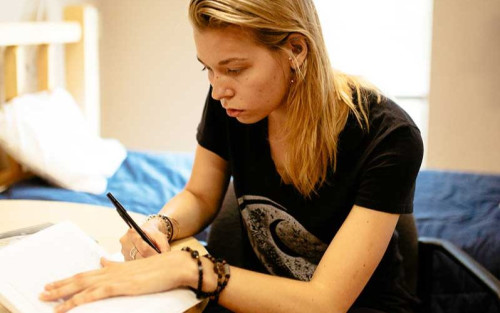





The Camp Recovery Center
Verified Center
This provider's information has been quality-checked by Recovery.com's Research Team for accuracy and completeness, including center verification through appropriate third-party organizations.
Treatment Focus
This center treats substance use disorders and co-occurring mental health conditions. Your treatment plan addresses each condition at once with personalized, compassionate care for comprehensive healing.
Primary Level of Care
Offering intensive care with 24/7 monitoring, residential treatment is typically 30 days and can cover multiple levels of care. Length can range from 14 to 90 days typically.
Treatment Focus
This center treats substance use disorders and co-occurring mental health conditions. Your treatment plan addresses each condition at once with personalized, compassionate care for comprehensive healing.
Primary Level of Care
Offering intensive care with 24/7 monitoring, residential treatment is typically 30 days and can cover multiple levels of care. Length can range from 14 to 90 days typically.
Provider's Policy
Please call our admissions team for more information on insurance coverage. A knowledgeable member of our team can answer any financial questions you might have, and they can also reach out directly to your insurance carrier to verify and maximize your benefits. This service is free and puts you under no obligation to choose our programming.
The Camp Recovery Center
The Camp Recovery Center
About The Camp Recovery Center
The Camp offers a full continuum of care to help adults 18 and older develop the recovery skills needed to break the cycle of addiction. Their team of specialists creates individualized plans for detoxification, residential care, day treatment, or intensive outpatient treatment (IOP). Guided by the philosophy that “recovery means life,” they help clients not only regain control but also find joy and purpose in sober living. Through holistic care, family involvement, co-occurring mental health treatment, and ongoing support, The Camp fosters lasting change that extends far beyond treatment.
Combine Therapies in a Personalized Plan
The Camp’s programming begins with a thorough drug and alcohol assessment to tailor treatment to each client’s unique needs. Their approach blends the 12-Step philosophy with evidence-based therapies such as cognitive-behavioral therapy (CBT), individual and group counseling, and chemical dependency education. Clients also engage in sober recreational activities and relapse prevention planning, ensuring they build the skills and support needed for lasting recovery.
Immerse in a Structured Daily Routine
Each day at The Camp is highly structured, combining therapy, education, and peer support in a dynamic recovery environment. Clients participate in small-group discussions, process groups, and relapse prevention planning while exploring personal challenges and developing healthier coping strategies. With opportunities for self-reflection, connection, and skill-building, clients gain the confidence and support needed to sustain long-term sobriety.
Enjoy Nature as a Backdrop for a New Beginning
The Camp is a place where people can get away from their busy lives and focus on the work of recovery, knowing that their privacy is well-protected. Nestled on 25 acres in the Santa Cruz Mountains, clients live in cabins with porches overlooking redwood groves. The center features a swimming pool, hiking trails, and basketball and tennis courts. Located close to the Pacific Ocean, Santa Cruz, Monterey Bay, and Big Sur, The Camp uses its stunning surroundings to introduce clients to outdoor activities and sober recreation in the local area.

Highlights from the Center
Highlights
These highlights are provided by and paid for by the center.
Nature Lovers
Therapeutic Location
Pool
12-Step Approach
Center Overview
Treatment Focus
This center treats substance use disorders and co-occurring mental health conditions. Your treatment plan addresses each condition at once with personalized, compassionate care for comprehensive healing.
CARF Accredited
CARF stands for the Commission on Accreditation of Rehabilitation Facilities. It's an independent, non-profit organization that provides accreditation services for a variety of healthcare services. To be accredited means that the program meets their standards for quality, effectiveness, and person-centered care.
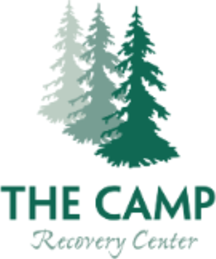
The Camp Recovery Center
Insurance Accepted
Cash Pay Rates
Estimated Cash Pay Rate
Center pricing can vary based on program and length of stay. Contact the center for more information. Recovery.com strives for price transparency so you can make an informed decision.




Treatment Centers Similar to The Camp Recovery Center in Northern California
Recovery.com Verified Listing
Recovery.com verified that the name, location, contact information and license to operate for this treatment provider are valid and up-to-date.

CARF Accredited

Licensed by California DHCS

NAATP Member
Recovery.com is an independent, third-party mental health resource. Verification does not imply endorsement and does not guarantee the quality of treatment services.
Meet Your Care Team

Lorie Gearhart
Psychiatrist
MD

Hector Abundiz
Adult Program Manager
CADC II
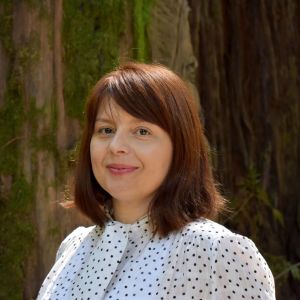
Tea Beradze
Clinical Director and Interim Chief Executive Officer
LMFT
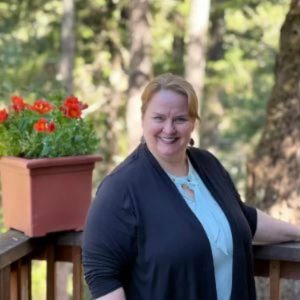
Kris Bazavilvazo
Group Chief Financial Officer
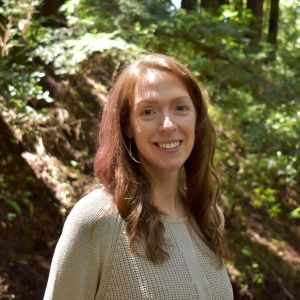
Marce Abare
Medical Director
MD, MPH

Tiffany Baker
Director of Outpatient Services
CADC-CAS

David Delgadillo-Morales
Manager of Aftercare/Alumni Services

Lauren Allar
COD Program Manager
ASW

Autumn Ginty-Wheeler
COD Therapist
Master’s degree in Social Work

Kelcy Wiley
Counselor
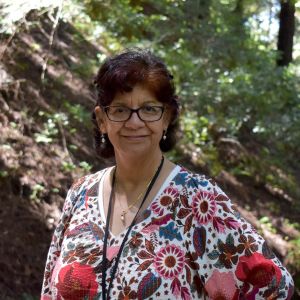
Christine Andes Cook
Counselor
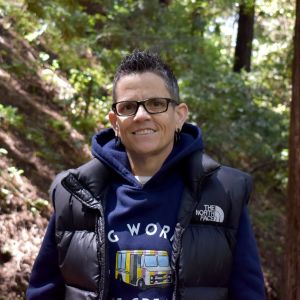
Cindy Mortenson
Counselor

Chelsea Kellogg
UM Manager
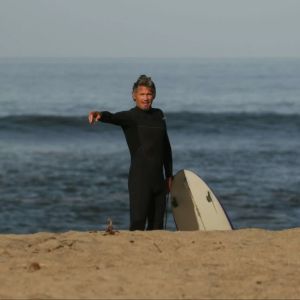
Darryl “Flea” Virostko
Instructor, Surfing & Watersports Modality
Your Care Options
Specializations
Alcohol
Using alcohol as a coping mechanism, or drinking excessively throughout the week, signals an alcohol use disorder.
Detox
Detox fully and safely removes toxic substances from the body, allowing the next steps in treatment to begin with a clean slate.
Co-Occurring Disorders
A person with multiple mental health diagnoses, such as addiction and depression, has co-occurring disorders also called dual diagnosis.
Drug Addiction
Drug addiction is the excessive and repetitive use of substances, despite harmful consequences to a person's life, health, and relationships.
Holistic
A non-medicinal, wellness-focused approach that aims to align the mind, body, and spirit for deep and lasting healing.
Veterans
Patients who completed active military duty receive specialized treatment focused on trauma, grief, loss, and finding a new work-life balance.
Residential
In a residential rehab program, patients live onsite, with access to daily treatment and 24-hour care. An average stay is 30-90 days.
Twelve Step
Incorporating spirituality, community, and responsibility, 12-Step philosophies prioritize the guidance of a Higher Power and a continuation of 12-Step practices.
Who We Treat
Men and Women
Men and women attend treatment for addiction in a co-ed setting, going to therapy groups together to share experiences, struggles, and successes.
Veterans
Patients who completed active military duty receive specialized treatment focused on trauma, grief, loss, and finding a new work-life balance.
Treatment Services
Day Treatment
In a PHP, patients live at home but follow an intensive schedule of treatment. Most programs require you to be on-site for about 40 hours per week.
Detox
Detox fully and safely removes toxic substances from the body, allowing the next steps in treatment to begin with a clean slate.
Intensive Outpatient Program
In an IOP, patients live at home or a sober living, but attend treatment typically 9-15 hours a week. Most programs include talk therapy, support groups, and other methods.
Outpatient
During outpatient rehab, patients attend a structured treatment program while continuing to live at home.
Residential
In a residential rehab program, patients live onsite, with access to daily treatment and 24-hour care. An average stay is 30-90 days.
Approaches
Evidence-Based
A combination of scientifically rooted therapies and treatments make up evidence-based care, defined by their measured and proven results.
Experiential
Expressive tools and therapies help patients process past situations, learn more about themselves, and find healing through action.
Family Involvement
Providers involve family in the treatment of their loved one through family therapy, visits, or both–because addiction is a family disease.
Holistic
A non-medicinal, wellness-focused approach that aims to align the mind, body, and spirit for deep and lasting healing.
Individual Treatment
Individual care meets the needs of each patient, using personalized treatment to provide them the most relevant care and greatest chance of success.
Twelve Step
Incorporating spirituality, community, and responsibility, 12-Step philosophies prioritize the guidance of a Higher Power and a continuation of 12-Step practices.
Gender-Specific
Separate treatment for men or women can create strong peer connections and remove barriers related to trauma, shame, and gender-specific nuances.
Therapies
1-on-1 Counseling
Patient and therapist meet 1-on-1 to work through difficult emotions and behavioral challenges in a personal, private setting.
Meditation & Mindfulness
A practiced state of mind that brings patients to the present. It allows them to become fully aware of themselves, their feelings, and the present moment.
Art Therapy
Visual art invites patients to examine the emotions within their work, focusing on the process of creativity and its gentle therapeutic power.
Experiential Therapy
With this approach, patients heal by doing. Therapists help patients process difficult emotions to speak, using guided activities like art or dance.
Family Therapy
Family therapy addresses group dynamics within a family system, with a focus on improving communication and interrupting unhealthy relationship patterns.
Music Therapy
Singing, performing, and even listening to music can be therapeutic. Music therapy sessions are facilitated by certified counselors.
Conditions We Treat
Post Traumatic Stress Disorder
PTSD is a long-term mental health issue caused by a disturbing event or events. Symptoms include anxiety, dissociation, flashbacks, and intrusive thoughts.
Trauma
Some traumatic events are so disturbing that they cause long-term mental health problems. Those ongoing issues can also be referred to as "trauma."
Substances We Treat
Alcohol
Using alcohol as a coping mechanism, or drinking excessively throughout the week, signals an alcohol use disorder.
Benzodiazepines
Benzodiazepines are prescribed to treat anxiety and sleep issues. They are highly habit forming, and their abuse can cause mood changes and poor judgement.
Co-Occurring Disorders
A person with multiple mental health diagnoses, such as addiction and depression, has co-occurring disorders also called dual diagnosis.
Cocaine
Cocaine is a stimulant with euphoric effects. Agitation, muscle ticks, psychosis, and heart issues are common symptoms of cocaine abuse.
Drug Addiction
Drug addiction is the excessive and repetitive use of substances, despite harmful consequences to a person's life, health, and relationships.
Ecstasy
Ecstasy is a stimulant that causes intense euphoria and heightened awareness. Abuse of this drug can trigger depression, insomnia, and memory problems.
Heroin
Heroin is a highly addictive and illegal opioid. It can cause insomnia, collapsed veins, heart issues, and additional mental health issues.
Psychedelics
Hallucinogenic drugs—like LSD—cause euphoria and increased sensory experiences. When abused, they can lead to depression and psychosis.
Methamphetamine
Methamphetamine, or meth, increases energy, agitation, and paranoia. Long-term use can result in severe physical and mental health issues.
Languages
Aftercare
Care Designed for Your Needs
Personal Amenities
Amenities
Special Considerations
Gender-specific groups
Patients in gender-specific groups gain the opportunity to discuss challenges unique to their gender in a comfortable, safe setting conducive to healing.
Activities
Yoga
Yoga is both a physical and spiritual practice. It includes a flow of movement, breathing techniques, and meditation.

Learn More About the Center
A Typical Day at The Camp
Learn about the programming and recovery-related activities of a typical day.
Conscious Recovery Program
Get an overview of this method and the topics in its 12-week curriculum.
Co-Occurring Disorder Treatment
Find out how The Camp supports clients battling both addiction and a co-occurring mental health disorder.
The Camp’s Buddy System
Read about the positive results of The Camp’s “buddy system” for accountability.
What people are saying
Treatment
3.9
Accommodations
4.4
Food & Nutrition
4.4
Value
4.3
C.D.
Reviewed 07/19/20
Review from Rehabs.com
Ro
Reviewed 02/08/17
Review from Rehabs.com
DJR
Reviewed 03/24/15
Review from Rehabs.com
Anonymous
Reviewed 06/24/16
Review from Rehabs.com
DJR
Reviewed 06/24/16
Review from Rehabs.com





